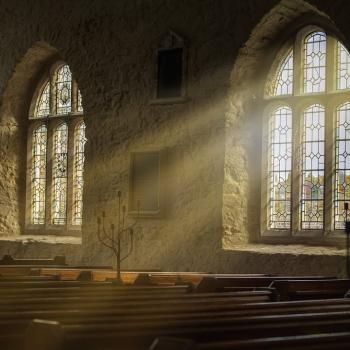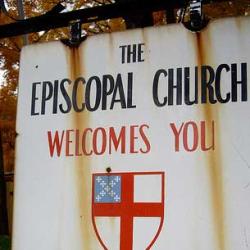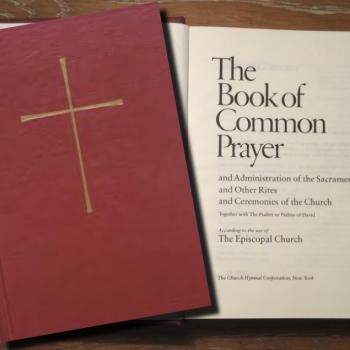 In conversations with my students at Garrett-Evangelical Theological Seminary, I’ve been asked, “Why does the crisis at The General Theological Seminary matter? Doesn’t The Episcopal Church have too many seminaries anyway?” The answer, of course, is, “Yes, it does.”
In conversations with my students at Garrett-Evangelical Theological Seminary, I’ve been asked, “Why does the crisis at The General Theological Seminary matter? Doesn’t The Episcopal Church have too many seminaries anyway?” The answer, of course, is, “Yes, it does.”
Even if the in-coming class of seminary freshmen in The Episcopal Church was divided by the number of seminaries that the church has and those students were then assigned in equal numbers to the church’s schools, that strategy could not possibly guarantee the future of theological education at each of those locations. And even though no institution of higher education can be sustained by tuition alone, none of our seminaries have the kind of endowment that would make the math work.
That said, GTS is the church’s oldest seminary. It is the repository of the rare gift of location and place and that rare gift is the function of a unique history that can never be replicated. The Episcopal Church — more than any other mainline denomination — is also an urban church. As a Chicagoan, who is loathe to feed New York egos, which need no feeding, it must be said that it is hard, if not impossible to imagine this denomination without a place to train some of its clergy in that one-of-a-kind setting.
We have spent the last ten to fifteen years retrenching and backing away from buildings and spaces that are our legacy in the heart of the nation’s leading cities. Our disappearance from those places is not — as some would have it — right-sizing, new found modesty, or the product of a brave new world. Those losses are the product of a diminished vision, “a failure of nerve,”, and worst of all, a product of spiritual malaise. Let’s not fool ourselves. To sell out, move, and to abandon a place like The General Theological Seminary is to shrink in presence and in a capacity for ministry.
That is why the events of this week at GTS matter so much.
Yes, on one level Thursday’s conversation between the faculty, the Seminary’s board, and its President-Dean is a conversation about a relatively small number of people – even if you factor in the lives of the hapless students caught in the middle of the conflict and the families of everyone concerned. And, no, the larger world won’t take note for very long, if it takes note of the conflict at all. A small and, by the world’s standards, quaint institution will disappear. A flurry of real estate transactions will follow and a small group of attorneys will make an obscene amount of money. But on another level, this is a debate about whether or not this generation of the church’s leaders can find a way to grasp that something larger is at stake.
Some historians argue that most church reform movements have a life expectancy of roughly 500 years. The Protestant Reformation in all its forms – continental and English – is on the clock and arguably it has already failed close to its ancestral homes. So, it matters what will happen to a small seminary in the “New Jerusalem,” or the “New Rome,” or whatever other metaphors New Yorkers are given to using. Will we give ourselves over to an ecclesiastical version of The Housewives of New Jersey? Or will the seminary grasp with new humility that it has been entrusted with something larger?
The students at GTS are watching. The rest of The Episcopal Church is watching and the rest of Protestantism should take note. If spiritual depth and fresh, new vision emerges from this week’s conversations in New York, a model for moving forward rather than retreating might emerge. If not, the rest of Protestantism should breathe a quiet, “there, but for the grace of God…” and then give itself to a sober search for the way forward. We are all on the clock.












